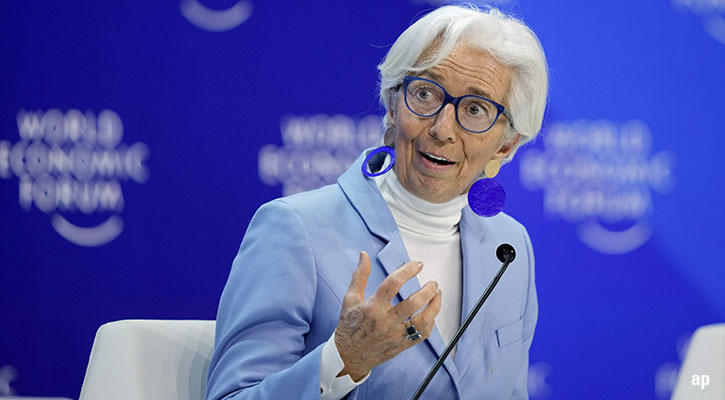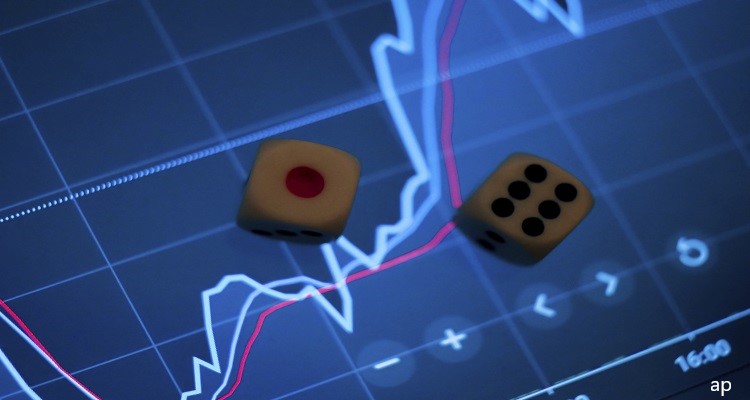Jeremy Glaser: For Morningstar, I'm Jeremy Glaser. With European data showing signs of weakness again, is this just a temporary blip or signed of sustained downturn? I'm here today with Bob Johnson, he is our Director of Economic Analysis, to see what's causing this weakness and if it could spread to the United States.
Bob, thanks for joining me.
Bob Johnson: Thanks for having me.
Glaser: Let's take a look at what's happening in Europe then. Just by the numbers what is some of the recent data told us about what's happening with the economy?
Johnson: Sure. Europe right now in the second quarter basically showed no growth whatsoever and that was kind of a bit of a surprise to folks. We had been coming out of a recovery in Europe. We bottomed in June of 2013. We've had a few quarters of growth and so now kind of four quarters in, all of a sudden, we're not growing again. And this time around it's some of the core countries. So, it's no growth in France. Italy actually showed a 0.2% decline and surprisingly, even Germany showed a 0.2% decline. That's all reported sequentially. You'd have to multiply those numbers by 4 to get kind of the U.S. standard of how we look at the numbers, but those are still weak numbers by anybody's account.
Glaser: What's causing that? Why don't you think those factors are going to come over to the United States or could impact the United States?
Johnson: Sure. There's a couple of things going on in Europe right now. I mean, their demographics are certainly a little bit worse than ours. They haven't restructured the banking system the way that we have. We're trying to kind of nudge them in that even with some of the banking fines we've imposed on banks from Europe. But really they didn't do the big restructuring, take the big hit that our banks did in 2009 and as a consequence, bank lending is still very, very low in Europe and it's one of the key problems.
Glaser: How about fiscal policy? What impact have these government austerity programs had on the recovery in Europe?
Johnson: Yeah. I think they went after an austerity program in a bigger way, in a more sustained way than the U.S., and in some of the countries, and peripheral actually did need to go through some of this restructuring. But the austerity problems have really hit home and maybe they are trying to get too frugal with their money just a little bit and that's kind of – it's what we call the paradox of thrift. The more the people try to individually or country save individually, the worse off it makes everybody else because then they are not spending money and so forth and if they are not spending money, then they aren't going to produce goods. So, it kind of circles on itself. Savings is good to an individual sometimes, but it actually ends up hurting the economy.
Glaser: How about the European Central Bank though, they've been less aggressive than the Fed. Is that having an impact?
Johnson: Yeah, they've been reluctant to do some of the quantitative easing, things that we've done in this country, that is buying back bonds to try to reduce the long-term interest rates and frankly, the reason is partially mechanical. It's very difficult – in the U.S., we've got one currency and one thing to buy back and it's pretty simple to take a shot at. Here, buying back things means buying the sovereign debt of other countries and then which one do you buy and who are you favoring and technically, they are not allowed to buy other countries' debt. So, they haven't been able to do quantitative easing in quite the way that we have to bring down rates.
They are trying to make some aggressive efforts to get banks to lend more by putting a negative deposit rate there at the bank, so they are encouraged to lend money out. I think they probably actually need to do more on that front and they are doing other programs to encourage banks to lend money. But that really doesn't kick in until September. So, we've seen these slow numbers, we're kind of going like, oh, well, the ECB did the stuff, now they're going to have to do more. Well, maybe we just got to give some of the older programs a little bit of time to kick in.
Glaser: A lot of these issues sound more like entrenched structural issues, ones that could take a while to work through. Do you think there is hope that Europe can return to growth, or are they going to be stuck kind of at this flat area for quite some time?
Johnson: Well, the demographics are not good and we saw what happens with bad demographics in Japan, where we had almost no growth over a period of decade. And I don't think the situation is quite as dire in Europe and certainly, we're seeing a few signs of hopeful things. I mentioned the ECB has become more helpful. The peripheral countries have really done some nice adjustments and I mentioned how bad the second quarter GDP was overall.
But the countries that were having problems, the Spains of the world, Greece, are beginning to look a little bit better. They're actually have made some cuts and adjustments and now their trade deficit has gone away and all the sudden those countries are growing a little bit better. So, it's not all doom and gloom in Europe.
Glaser: How about the euro itself? It seems like the discussion of the euro collapsing have disappeared off the table, but how do you view the value of the euro right now and how that's impacting the recovery?
Johnson: Yeah, it's too bad that the euro isn't a little bit weaker. I think that Europe has certainly had an issue with the euro being relatively expensive and making their goods a little bit less competitive in world markets. And with this low interest rate regime that we've got out of Europe now, I'm a little surprised that the euro hasn't weakened just a little bit more than it has, it's down a little bit. But it needs probably to go a little bit lower yet to help their export economies, and the exports are very important to Europe, more so than they are here to the U.S. And certainly, if the euro was just a bit lower, it would make them much more competitive. Unfortunately, it might hurt U.S. exports as well. But the good news is that, I think the euro is beginning to weaken and I think that will help all of those economies become more competitive.
Glaser: So overall, you see Europe as maybe having a few ways to grow, but that it could take some time before we see kind of robust growth out of the (issue)?
Johnson: Yeah, I don't think we're ever going to go back to the days of really robust growth when we were expanding the European Union and when there was kind of almost a bubble in lending to the peripheral countries. So, I don't think we're going back to those – the good old days, but I think there are some reasons for hope that we talked about.
Short-term; I'm a little worried about if the sanctions against Russia were to crank up a little bit, what that does to them. And now we're talking volcanos in Iceland potentially affecting European tourism, and tourism was one of the things that was getting better that really could have helped them out. It's just shocking to me that more people visit Paris in a year than visit – visit France than visit United States in any given year by multiples. And certainly, tourism is very important there and I'd hate to see the volcano in Iceland disrupt that situation yet again.
Glaser: Well, Bob, thanks for your take on the European economy today.
Johnson: Thank you.
Glaser: For Morningstar, I'm Jeremy Glaser. Thanks for watching.








.jpg)










